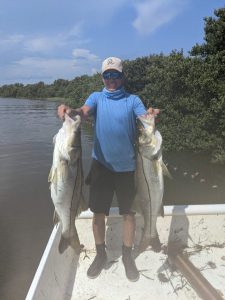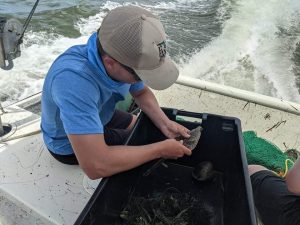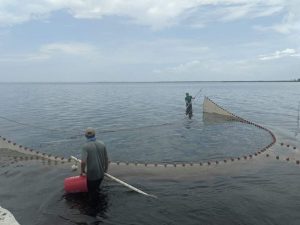Written by 2021 UF/IFAS NCBS Summer Intern, Erik Van Dyke
 My Internship Experience
My Internship Experience
This summer I was able to work with the Fisheries Independent Monitoring (FIM) lab in Cedar Key. FIM uses standardized sampling methods to evaluate fish abundance, age composition, and condition of fish populations. We collected fish using offshore trawls, a 70-foot seine net, and a 600-foot seine net. The fish were then measured and released, with only a few fish from certain species being kept as a representative sample and used for further testing.

A Days Work…
I learned a ton about the fish species that are present in the Cedar Key area and practiced learning the scientific names of the common ones we caught. I was amazed to see how many snook are in the area now. Catching large over-slot snook was not uncommon. In the lab, I learned how to remove the otoliths, gonads, mercury samples, and collect other data from the fish that we brought back.
 Thank you!
Thank you!
I want to give a huge thanks to John, Stephanie, Brian, Jenny, and Shea for teaching me in the field and taking the extra time to thoroughly explain how and why they do certain things while sampling. They made the internship a very fun and educational experience. I also would like to thank Caleb and Taj for making my internship possible.
 0
0
